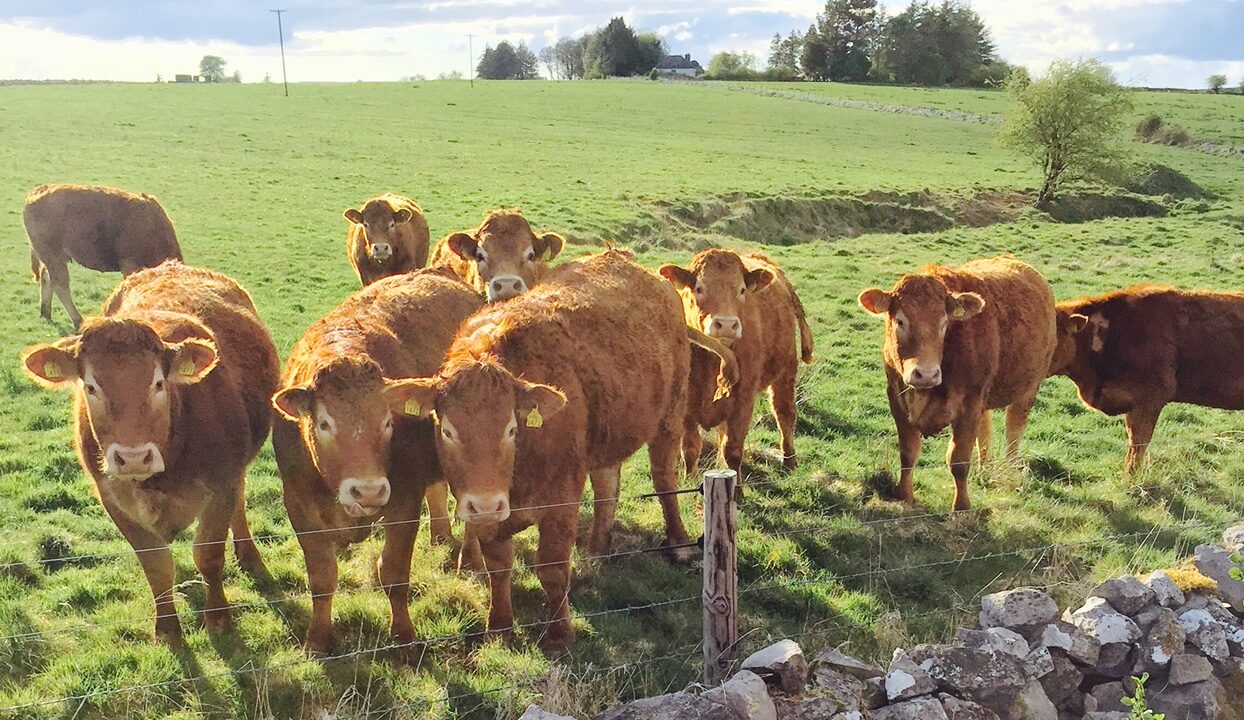Over €40 has been wiped off beef cattle prices as a number of processors have dropped base beef quotes.
Many beef factories are now offering quotes of 390-400c/kg for steers and 405-410c/kg for heifers.
This is a considerable price drop compared to last week, when the majority of processors where quoting 405c/kg for steers and 415c/kg for heifers.
At the lower end of the steer quotes, this is a price drop of €42 on a 280kg steer carcass compared to this day last week.
The move by factories follows last week’s Brexit vote, which has caused volatility in the currency markets, resulting Sterling falling to its lowest level against the dollar in 31 years.
A number of procurement managers told Agriland that the UK’s decision to exit the European Union has sent shock waves throughout the beef industry.
An area of particular concern for procurement managers is euro/Sterling relationship. This is important as the UK is the largest market for Irish beef and according to factories, its future looks uncertain.
According to Bord Bia, the UK was the main buyer of Irish beef in 2015, as it took 52% of all beef produced in Ireland valued at over €1 billion.
Already this year, the volume of Irish beef exported to the UK in January and February dropped 7.5% compared to the same time in 2015 due to changes in the currency markets.
And, one procurement manager said that the Brexit decision is really having a major impact on Ireland’s beef exports to the UK.
Another procurement manager added that it is difficult to see where exactly the market is heading, but it faces a period of uncertainty over the next couple of weeks.
Along with farmers facing lower beef prices this week, it is also understood that some beef processors will try to reduce their weekly kill until some of the uncertainty in the market clears.
Some farmers have already reported difficulty in getting cattle slaughtered this week, with some having cattle turned away by factories who wait to say what way the markets pan out.
‘Don’t panic on beef price just yet’
According to the ICSA’s Eddie Punch, there is no need for farmers to panic on the back of the lower quoted beef prices this week.
The ICSA General Secretary said that cattle supplies continue to remain tight and there is plenty of grass on farms.
Punch also said that the fluctuations in the Sterling/euro exchange rates are no different that what are there normally, as ups and downs are often associated with the market.
Sterling hasn’t collapsed, it has just dropped a little.
The IFA National Livestock Chairman Angus Woods said there was no justification for any change in beef price this week.
He said that nothing has changed in terms of the markets available for Irish cattle and prices should have stayed relatively unchanged given the tightening in cattle numbers over the past nine weeks.
Cattle prices in the UK increased by 3p/kg last week, he said, and when the tighter supply of Irish cattle and the higher UK prices are considered he said that Irish cattle prices should have remained relatively unchanged.
Prime beef cattle supplies up 7%
Prime cattle slaughterings in Department of Agricultural beef export plants are slowly starting to creep up.
According to the Department’s beef kill database, the prime cattle kill (steers, heifers and young bulls) posted a 7% jump during the week ending June 19 compared to the week before.
Looking at the kill on an individual basis, heifer, steer and young bull slaughterings all increased, up by 12% (835 head), 6% (530 head) and 0.6% (27 head) respectively on the week ending June 12.
On the back of a higher prime cattle kill, the weekly beef kill has passed 30,000 head for the first time in nine weeks.
According to the Department of Agriculture’s beef kill database, 30,426 cattle were slaughtered in Irish beef plants during the week ending June 19, 10% higher than the week before.
Along with the increase in prime slaughterings, figures from the Department also show that there has been an increase in aged bull and cow throughput.
These are both up in the region of about 18% on the week ending June 12.
Main markets
According to Bord Bia, the British beef trade remains relatively unchanged on the back of tighter supplies during the week ending June 18.
It shows that the British steer price is now the equivalent of around €4.20/kg, while the latest Northern Irish R3 steer price equates to €4.12/kg.
The French beef market also remains unchanged, it says, as the market is underpinned by strong supplies of domestic beef and difficulties getting imported products into retailers.
According to Bord Bia, the Italian beef market continues to remain slow on the back of reduced consumption and as a result Italian R3 young bulls were averaging €3.77/kg last week.
